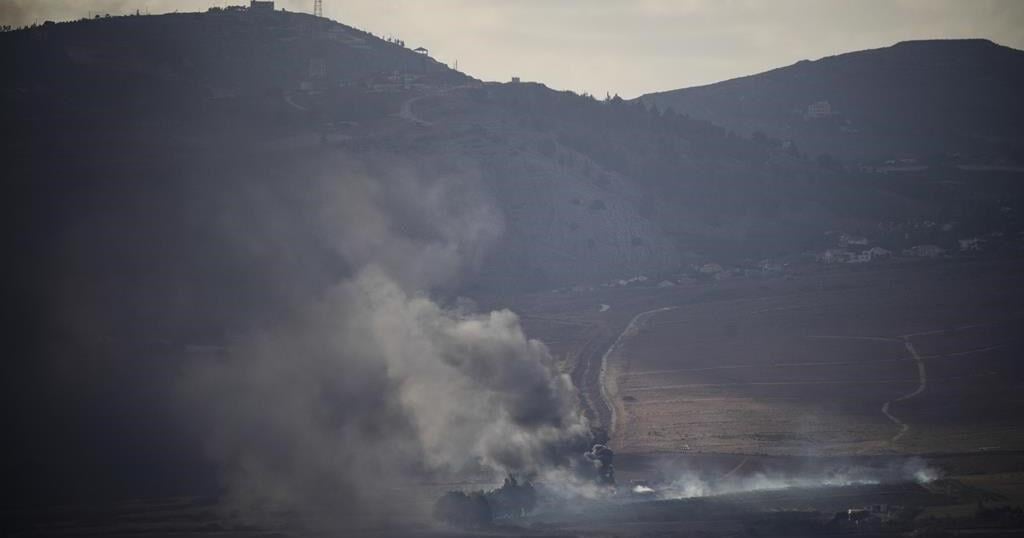WASHINGTON (AP) — Secretary of State Antony Blinken heads to Egypt on Tuesday for his 10th trip to the Middle East since the war in Gaza began nearly a year ago, this one aimed partly at refining a proposal to present to Israel and Hamas for a cease-fire deal and release of hostages.
Unlike in recent mediating missions, America’s top diplomat this time is traveling without optimistic projections from the Biden administration of an expected breakthrough in the troubled negotiations.
Also unlike the earlier missions, Blinken has no public plans to go to Israel to meet with Prime Minister Benjamin Netanyahu on this trip. The Israeli leader’s fiery public statements — like his declaration that Israel would accept only “total victory” when Blinken was in the region in June — and some other unbudgeable demands have complicated earlier diplomacy.
Blinken is going to Egypt for talks Wednesday with Egyptian Foreign Minister Badr Abdelatty and others, in a trip billed as focused both on American-Egyptian relations and Gaza consultations with Egypt.
The tamped-down public approach follows months in which President Joe Biden and his officials publicly talked up an agreement to end the war in Gaza as being just within reach, hoping to build pressure on Netanyahu’s far-right government and Hamas to seal a deal.
The Biden administration now says it is working with fellow mediators Egypt and Qatar to come up with a revised final proposal to try to at least get Israel and Hamas into a six-week cease-fire that would free some of the hostages held by Hamas in exchange for Palestinian prisoners held by Israel. Americans believe public attention on details of the talks now would only hurt that effort.
American, Qatari and Egyptian officials still are consulting “about what that proposal will contain, and …. we’re trying to see that it’s a proposal that can get the parties to an ultimate agreement,” State Department spokesman Matthew Miller said Monday.
The State Department pointed to Egypt’s important role in Gaza peace efforts in announcing last week that the Biden administration planned to give the country its full $1.3 billion in military aid, overriding congressional requirements that the U.S. hold back some of the funding if Egypt fails to show adequate progress on human rights. Blinken told Congress that Egypt has made progress on human rights, including in freeing political prisoners.
Blinken’s trip comes amid the risk of a full-on new front in the Middle East, with Israel threatening increasing military action against the Hezbollah militant organization in Lebanon. Biden envoy Amos Hochstein was in Israel on Monday to try to calm tensions after a stop in Lebanon.
Hezbollah has one of the strongest militaries in the Middle East, and like Hamas and smaller groups in Syria and Iraq it is allied with Iran.
Hezbollah and Israel have exchanged strikes across Israel’s northern border with Lebanon since the Oct. 7 attack by Hamas started the war in Gaza. Hezbollah says it will ease those strikes — which have uprooted tens of thousands of civilians on both sides of the border — only when there’s a cease-fire in Gaza.
Hochstein told Netanyahu and other Israeli officials that intensifying the conflict with Hezbollah would not help get Israelis back in their homes, according to a U.S. official. The official, who spoke on the condition of anonymity to discuss the private talks, said Hochstein stressed to Netanyahu that he risked sparking a broad and protracted regional conflict if he moved forward with a full-scale war in Lebanon.
Hochstein also underscored to Israeli officials that the Biden administration remained committed to finding a diplomatic solution to the tensions on Israel’s northern border in conjunction with a Gaza deal or on its own, the official said.
Netanyahu told Hochstein that it would “not be possible to return our residents without a fundamental change in the security situation in the north.” The prime minister said Israel “appreciates and respects” U.S. support but “will do what is necessary to maintain its security and return the residents of the north to their homes safely.”
Israel Defense Minister Yoav Gallant, meanwhile, warned in his meeting with Hochstein that “the only way left to ensure the return of Israel’s northern communities to their homes will be via military action,” his office said.
In Gaza, the U.S. says Israel and Hamas have agreed to a deal in principle and that the biggest obstacles now include a disagreement on details of the hostage and prisoner swap and control over a buffer zone on the border between Gaza and Egypt. Netanyahu has demanded in recent weeks that the Israeli military be allowed to keep a presence in the Philadelphi corridor. Egypt and Hamas have rejected that demand.
The Hamas-led attacks in southern Israel on Oct. 7 killed about 1,200 people. Militants also abducted 250 people and are still holding around 100 hostages. About a third of the remaining hostages are believed to be dead.
Israel’s offensive in Gaza has killed more than 41,000 Palestinians, said Gaza’s Health Ministry, which does not distinguish between civilians and militants in its count. The war has caused widespread destruction, displaced a majority of Gaza’s people and created a humanitarian crisis.
Netanyahu says he is working to bring home the hostages. His critics accuse him of slow-rolling a deal because it could bring down his hardline coalition government, which includes members opposed to a truce with the Palestinians.
Asked earlier this month if Netanyahu was doing enough for a cease-fire deal, Biden said, simply, “no.” But he added that he still believed a deal was close.
___
Associated Press writer Aamer Madhani contributed to this report.
